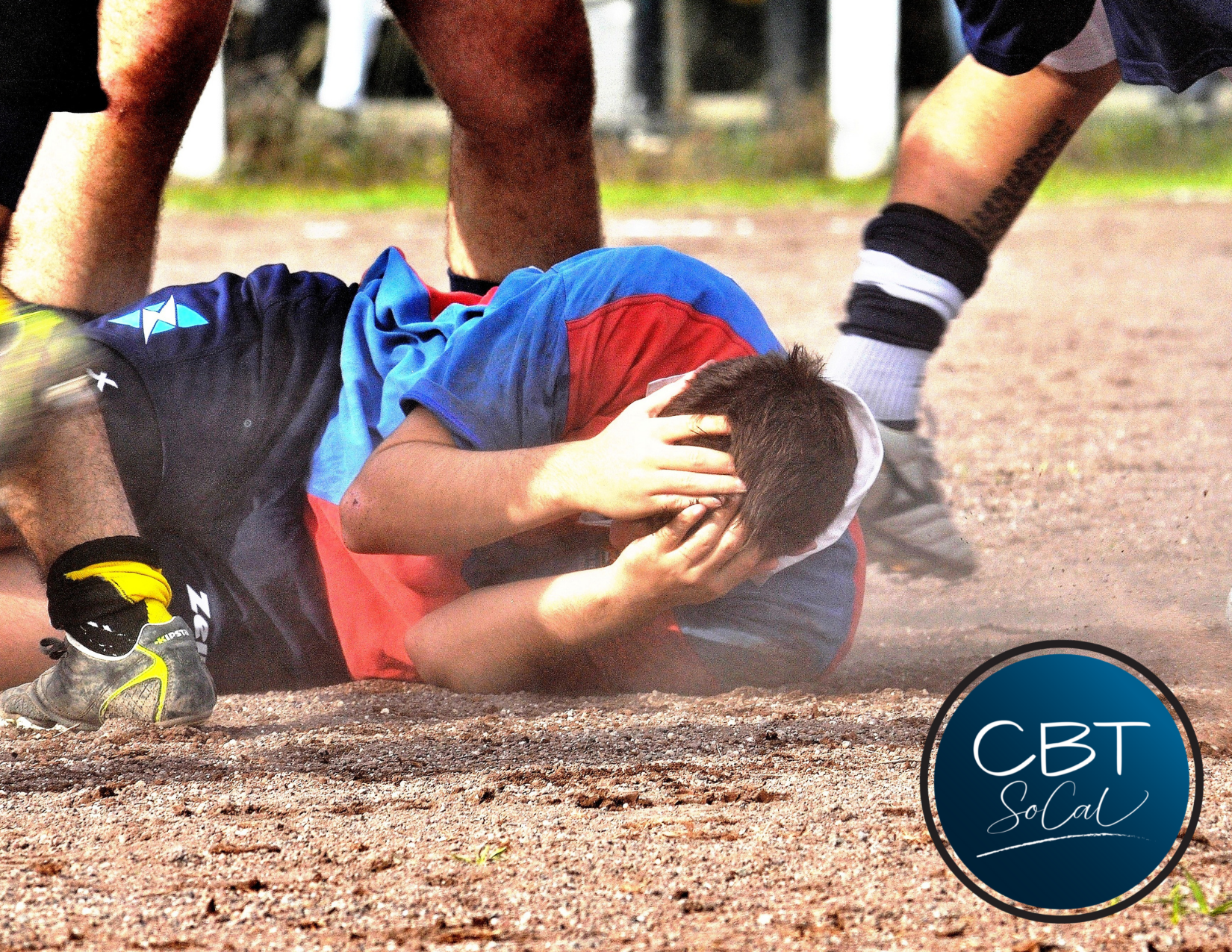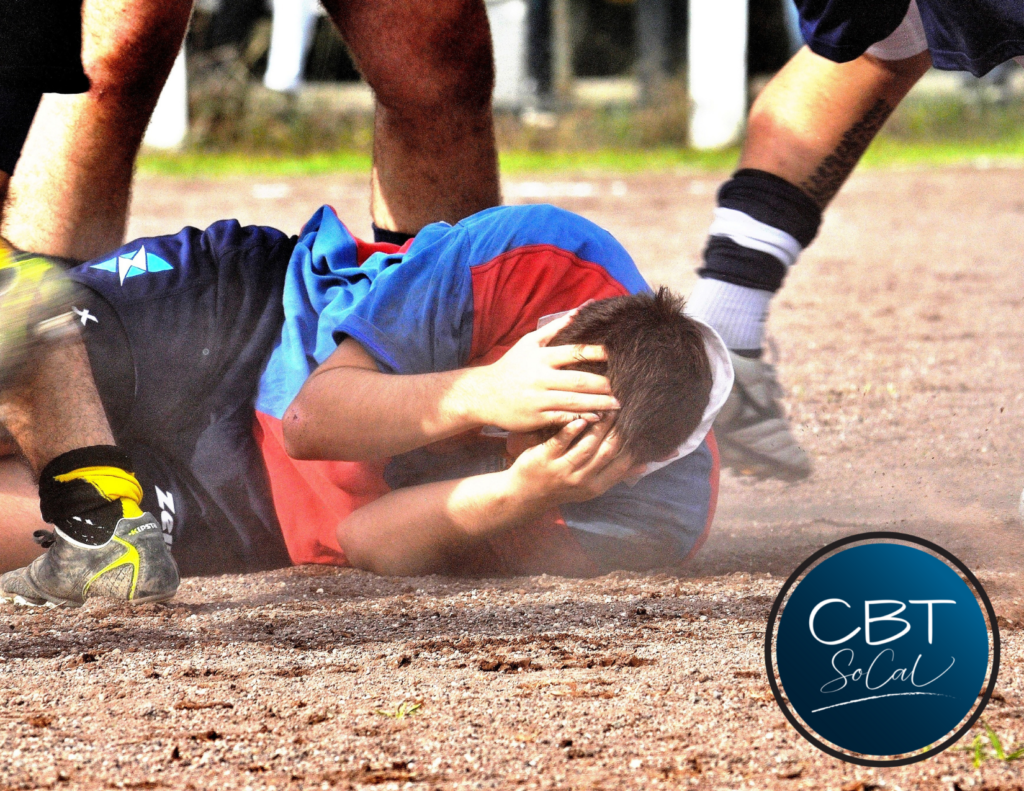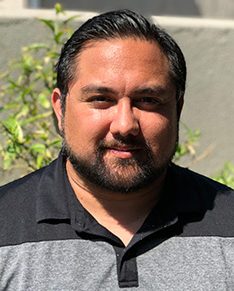How does a concussion impact an athlete’s mental health?


In recent years, there has been a growing awareness of the dangers of sport-related concussions. Movies such as Concussion starring Will Smith, and the heavily publicized trial of Aaron Hernandez, an upcoming NFL player posthumously diagnosed with chronic traumatic encephalopathy (CTE), have highlighted the need for education , prevention, and treatment related to brain injuries.
What is a concussion?
A concussion is a low velocity injury that causes brain shaking resulting in clinical symptoms (Consensus statement 4th International Conference on Concussion in Sport 2012). It can be caused by blows to the head, face, neck or elsewhere on the body where the force of the blow is transmitted to the head. Although athletes primarily experience concussions during practices or games, like anyone else, they can also experience them resulting from motor-vehicle accidents, accidental falls, and assaults.
What is the prevalence of concussions?
There are 1.6 to 3.8 million sports-related concussions in the United States (Daneshvar, et al., 2011).
What are the symptoms of a concussion?
The following symptoms are listed in the acute concussion evaluation (ACE):
Physical symptoms:
- Headache
- Nausea
- Vomiting
- Balance problems
- Visual problems
- Sensitivity to light
- Sensitivity to sound
Cognitive symptoms:
- Mentally foggy
- Slowed down
- Difficulty concentrating
- Difficulty remembering
Emotional symptoms:
- Irritability
- Sadness
- More emotional
- Nervousness
Sleep:
- Drowsiness
- Sleeping less than usual
- Sleeping more than usual
- Trouble falling asleep
How long does it take to recover from a concussion?
Most individuals will recover from a concussion in about 10 to 14 days. More specifically, about 21 percent will recover in a day, 64 percent will recover within 1 day to a week, 12 percent will recover within a week to a month, and 3 percent will experience symptoms beyond a month (McCrea, 2015, Sports Summit).
How does a concussion impact an athlete’s mental health?
Following a concussion, athletes experience a variety of emotional stressors. Athletes often feel as if they are letting their team down. They believe that they should be practicing and helping their teammates win rather than sitting on the sidelines or resting at home recovering from their injury. They can feel guilty, worthless, isolated, and depressed.
Athletes can also worry about losing their spot on the team. Athletes are often working hard to improve or maintain their status within the team, whether that means earning a starting position or advancing from third string to second string. Therefore, missing a week of practice in order to recover from a concussion can be a frustrating and anxiety provoking experience.
What can coaches and athletic trainers do to help concussed athletes with their mental health?
- Coaches and athletic trainers can remove athletes from play to protect their health while also verbally reinforcing the importance of health, safety, and the athlete’s value as a member of the team.
- Coaches and athletic trainers can be sure to create an environment in which an athlete is not pressured to return to play early and feels comfortable taking the needed time off to recover.
- Coaches and athletic trainers can check in frequently with athletes and find ways for them to feel connected to the team, as concussed athletes often feel isolated during recovery.
- Coaches and athletic trainers can be a sounding board and refer to mental health resources when appropriate.
If you are interested in learning more about how a mental health and sport psychology professional can help an athlete recovering from a concussion, contact us to schedule a free phone consultation.

Dr. Jason von Stietz specializes in Cognitive Behavior Therapy and Sport/Performance Psychology in Torrance, CA. He provides online therapy (telehealth) by way of the Torrance office and is available for a free initial phone consultation. Dr. von Stietz works with individuals from Long Beach, the greater Los Angeles area, and the South Bay including Palos Verdes, Redondo Beach, Hermosa Beach, Manhattan Beach, El Segundo and all over California.




